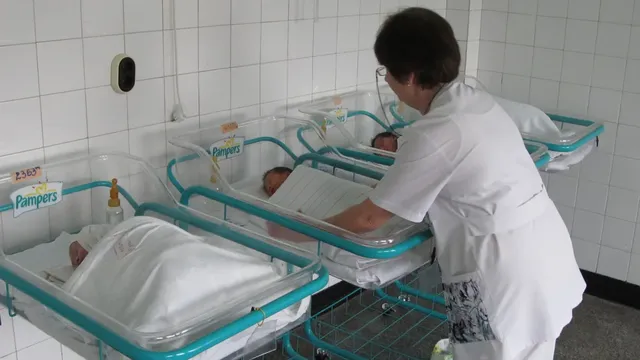Eight babies have now been born in the UK after being conceived using an innovative technology using genetic material from three people. The procedure aims to prevent severe and often fatal inherited mitochondrial diseases.
The method, developed by British scientists, combines an egg and sperm from the biological parents with a second egg from a donor containing healthy mitochondria.
Although the procedure has been legal in the UK for a decade, this is the first time that there have been confirmed cases of healthy children born without incurable mitochondrial diseases.
What are mitochondrial diseases?
These are hereditary conditions that are passed down through the mother's line and prevent cells from producing enough energy. The consequences can be tragic - from severe disabilities to the death of the newborn just days after birth. The risk increases if there are already affected children or relatives in the family.
Mitochondria are small structures in every cell that convert oxygen and food into energy. When mitochondria are defective, the body lacks the energy it needs for vital functions such as heart rate, brain activity, and organ function.
How does the technology work?
A child’s DNA comes almost entirely from their biological parents, but about 0.1% of their genetic material comes from the donor, who provides healthy mitochondria. This minimal addition of genetic material is passed on to subsequent generations.
Both eggs — from the mother and the donor — are fertilized in a laboratory with sperm from the father. After the so-called pronuclei (the structures containing the future child’s DNA) are formed, the parents’ genetic material is transferred into an embryo containing the donor’s healthy mitochondria.
The result is a child biologically related to their parents, but with almost zero risk of mitochondrial disease.
Out of concern for privacy, none of the affected families have been named publicly, but have provided anonymous statements through the Newcastle Fertility Centre, where the treatment was carried out, the BBC reported.
“After years of uncertainty, this procedure has given us hope – and then our baby,” said the mother of a girl.
“To see him now – full of life and potential – fills us with endless gratitude,” she added.
The mother of a boy said: “Thanks to this scientific breakthrough and the support we have received, our family is now whole. The burden of mitochondrial disease has been replaced by hope, joy and deep gratitude.”
An estimated 1 in 5,000 newborns suffer from mitochondrial disease. The Newcastle team estimates that between 20 and 30 families a year could benefit from the technology. Some parents have already experienced the death of more than one child due to the diseases.
The scientific development is the work of Newcastle University and Newcastle upon Tyne Hospitals NHS Trust, and since 2017, a specialized service for implementing the procedure has been operating in the British health system (NHS). | BGNES

 Breaking news
Breaking news
 Europe
Europe
 Bulgaria
Bulgaria







